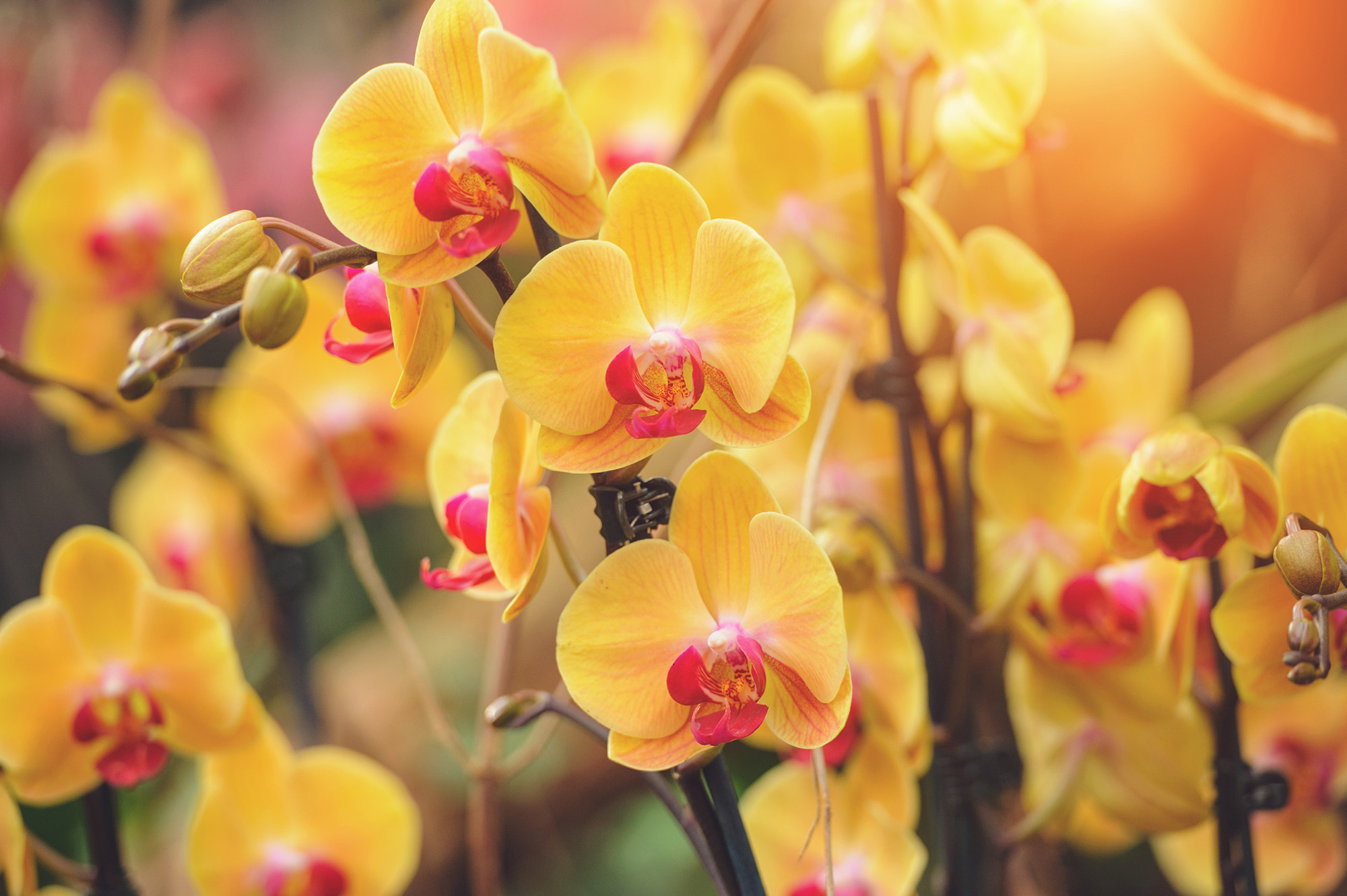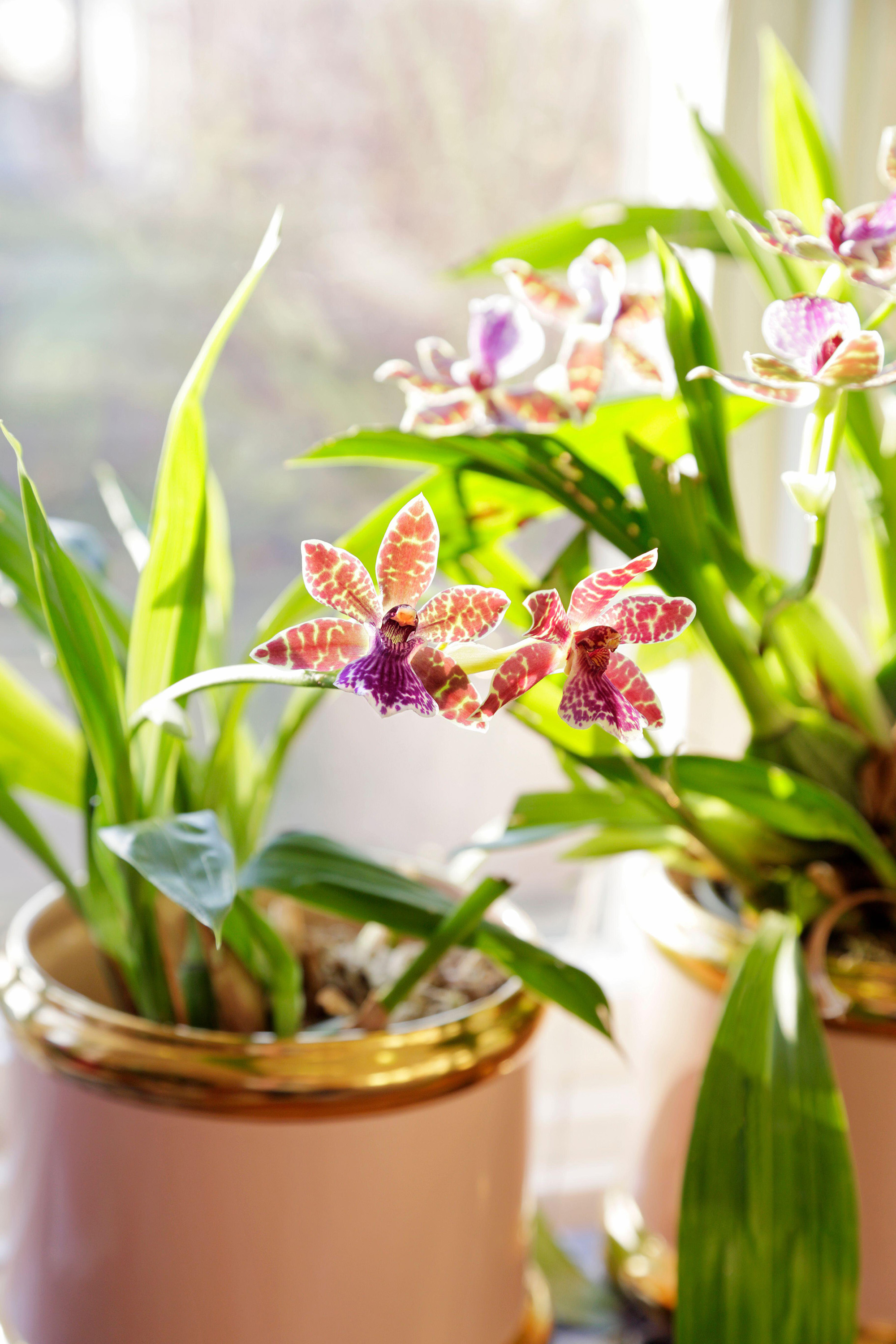When to repot orchids – for beautiful blooms
Discover when to repot orchids to maximize their flowering potential, and ensure they keep flourishing for years to come


Knowing when to repot orchids is important to ensure the plants stay healthy and continue to bloom reliably.
With their delicate, exotic-looking flowers, orchids are the most beautiful houseplants, and there are so many different varieties and colors to choose from. Though they have a reputation for being high-maintenance, they are actually very easy to look after once you know how.
However, as part of your orchid care regime, you must learn to spot when it’s time to repot them, and when to leave them alone.
When to repot orchids – expert guide
Orchids should be repotted every one to three years – but only when they need it.
‘The majority of orchids have been bred to grow in one particular size pot, so the only time you would want to repot your orchid is if the plant has become pot bound,’ explains Paige Harmon at Westerlay Orchids.
To recognize when your orchid is pot bound, pay close attention to the roots. ‘The roots will be growing out of the pot. When you water the plant you will notice that the pot is not retaining any moisture and all the water passes through. This is the indication that it is time to repot.’
You will also want to repot your orchid if the potting mix has begun to break down – check for compacted matter and lots of small particles. When the potting mix breaks down, it also restricts nutrients to the roots, causing them to die off.
Design expertise in your inbox – from inspiring decorating ideas and beautiful celebrity homes to practical gardening advice and shopping round-ups.
To rept your orchid, choose a pot that’s not much bigger than the current container. ‘A good general rule of thumb is to pot for the bottom of the plant, the root system, and not for the top, the foliage,’ say the experts at the American Orchid Society.
The potting medium you choose is crucial to the plant’s success – never use houseplant soil. A good bark mix will best replicate their natural growing conditions, retaining moisture but also allowing water to drain. This must be new – do not reuse old mix.
You should also be wary of cutting the roots – only remove those that are dried up or rotting. Damaging fresh roots can be detrimental to the orchid’s health.

Do orchids like to be root bound?
Unlike many other plants, orchids respond well to their roots being restricted, so there’s no need to upgrade them to a much larger pot.
‘Many orchids (including the moth orchid) are epiphytes – they naturally grow on trees, but do not harm or take nutrients from the trees in any way,’ says Valeria Valkova, head of the nursery at McBean's Orchids.
'Their roots are strong and have evolved to hold onto something – in our case it's the pot. Therefore the happiest orchid is the one that has its root tightly gripping the pot.'
When to repot orchids phalaenopsis
Knowing when to repot orchids of the phalaenopsis (moth) variety is the same as for any other type of orchid.
Look for the roots growing up the stem or creeping over the sides of the pot. Check to see if the potting mix has started to degrade, and examine the plant for dying roots.
What month do you repot orchids?
The best time to repot orchids is after they have flowered, which is most likely to happen in the spring or summer. Prime repotting months are May, June and July.
However, with the exception of orchids that produce pseudobulbs, such as cattleya, orchids can be repotted in any month of the year.

Melanie has worked in homes and gardens media for two decades. Having previously served as Editor on Period Living magazine, and worked on Homes & Gardens, Gardening Etc, Real Homes, and Homebuilding & Renovating, she is now focusing on her passion for gardening as a Senior Editor at Gardening Know How. As a keen home grower, Melanie has experimented with pretty much every type of vegetable at some point – with mixed results. Often it is the simplest things that elude you, which may explain why she just can't seem to master zucchinis.